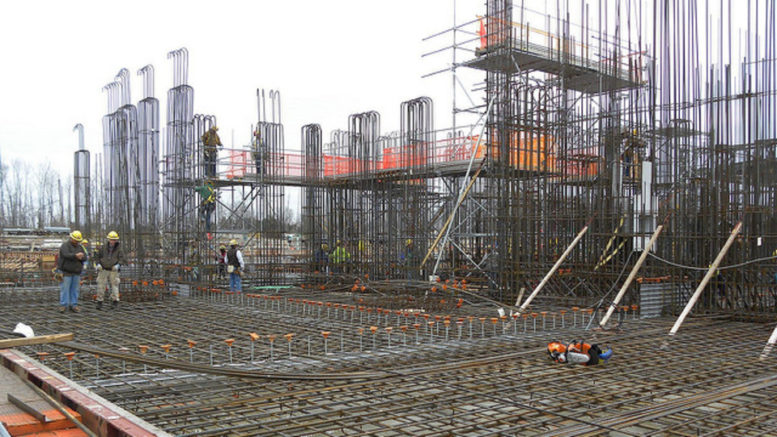ConDig (14-Mar-18). An increase in building material prices helped fuel rising construction costs in February as leaders of the US construction industry warn that the recent roll out of import duties on steel and aluminum products will escalate costs.
The producer price index for inputs to construction industries—a measure of all goods and services used in construction projects including items consumed by contractors —edged up 0.6% in February and jumped 4.4% in the last year, according to the Associated General Contractors of America’s (AGC) analysis of Labor Department figures.
“Price increases have accelerated for many construction materials in the last two years, with additional increases already announced, and others on the way as soon as tariffs on steel and aluminum take effect,” said the AGC’s chief economist, Ken Simonson.
“Contractors will be forced to pass these cost increases along in bid prices, but that will mean fewer projects get built. And contractors that are already working on projects for which they have not bought some materials are at risk of absorbing large losses.”
From February 2016 to February 2017, the producer price index rose 11.6% for aluminum mill shapes, 4.8% for steel mill products and 10% for copper and brass mill shapes.
Metal products that are used in construction include steel bars, known as rebar, to reinforce building and highway concrete; piles and beams in buildings; steel studs to support wallboard in houses and buildings; steel and copper pipe; and aluminum window frames, siding and architectural elements.
Several other products that are important to construction also had large price increases over the past 12 months, with diesel fuel rising 38.5%; lumber and plywood 13.2%; gypsum products 8% and plastic construction products 4.9%.
The analysis comes following a recent decision by President Trump to slap a 25% tariff on imported steel and a 10% duty on foreign aluminum.
The blanket duties were signed off on last Thursday will go into effect in 15 days following the Section 232 investigation. But North American Free Trade Agreement (NAFTA) members Canada and Mexico will be exempt from the tariffs while negotiations over a more friendly NAFTA deal is hammered out. The administration also said that it would be “flexible” with individual countries but did not mention whether certain products would be open to exemptions.
“Tariffs may help a few producers but they harm contractors and anyone with a limited budget for construction,” said Stephen E. Sandherr, AGC’s chief executive officer.
“The best way to help the US steel and aluminum sector is to continue pushing measures, like regulatory reform and new infrastructure funding, that will boost demand for their products as the economy expands.”
The association warned earlier this week that import tariffs on steel and aluminum could result in the loss of 30,000 jobs in the construction industry as contractors will be forced to absorb increased costs.
